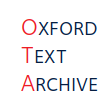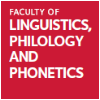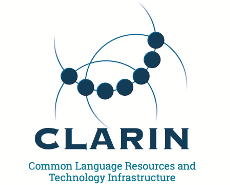About the Literary and Linguistic Data Service
- Introduction: a repository of digital texts
- Terms of Service
- Licence Agreement and Contracts
- Intellectual Property Rights
- Privacy Policy
- Metadata Policy
- Preservation Policy
- Citation Policy
Introduction: a repository of digital texts
A digital repository is like a library for literary and linguistic data, allowing users to:
- Search for texts and other resources and easily download them;
- Deposit data and be sure that it is safely stored, everyone can find it, use it, correctly cite it (with appropriate acknowledgements and restrictions).
The Literary and Linguistic Data Service (LLDS) provides repository services for literary and linguistic datasets. In that role the LLDS collects, catalogues, preserves and distributes high-quality digital resources for research and teaching. We currently hold thousands of texts in more than 25 languages, and are actively working to extend our catalogue of holdings. The LLDS relies upon deposits from the wider community as the primary source of materials. The LLDS is part of the CLARIN European Research Infrastructure; it is registered as a CLARIN centre, and LLDS services are part of the University of Oxford's contribution to the CLARIN-UK Consortium.
Terms of Service
Title of Service: Literary and Linguistic Data Service
Status of Document: This document presents the general responsibilities of the Literary and Linguistic Data Service in providing repository services relating to digital literary and linguistic datasets to support advanced digital teaching, learning and research.
1. Introduction
1.1 The LLDS accepts deposits of digital literary and linguistic datasets from contributors worldwide.
1.2 The LLDS catalogues the datasets according to accepted international standards, and makes the catalogue information freely available online to users and to resource discovery services.
1.3 The LLDS makes the textual resources deposited in the archive available online for research and educational use.
1.4 The LLDS services contribute to the digital research infrastructure, and aims to be a key component in the distributed network of datasets, services, tools, and support operations, which facilitate the research community’s discovery of, and access to, literary and linguistic resources.
1.5 The LLDS participates in numerous externally-funded projects and services that contribute to supporting research. Each grant-funded project or service is governed by its own service-level description or project plan agreed with the funding body.
2. Summary of LLDS’s responsibilities
Summary of services
2.1 The LLDS carries out the cataloguing, curation and long-term preservation of electronic texts, language corpora and other digital literary and linguistic resources accepted for deposit.
2.2 The LLDS makes deposited electronic texts, language corpora and other digital literary and linguistic resources available to users with a minimum of administrative hindrances, while respecting legal and ethical restrictions on distribution or use.
2.3 The LLDS develops and maintains the connection of archive collections to relevant infrastructure services, for example for resource discovery, and for web services access to the content of resources.
2.4 Resources which are accepted for deposit, which comply with the guidelines of the Text Encoding Initiative (TEI), will be made available online in the following ways:
- TEI, Dublin Core and OLAC metadata made available via OAI-PMH;
- Texts made available under a relevant Creative Commons licence in the following formats: XML; HTML; ePub; mobi (Kindle); plain text.
2.4 The LLDS seeks, on a best efforts basis, to prevent contraventions of the user licences.
2.5 Email queries should be sent to llds@ling-phil.ox.ac.uk. An initial consultancy meeting will be offered free of charge to users who are full members of the University of Oxford if this is requested, and is considered reasonable and necessary. Requests for detailed advice or consultancy will be responded to on a reasonable efforts basis.
2.6 Externally-funded services with a remit wider that the University comply with project plans or service-level descriptions agreed with the funding body. At the time of writing, active projects and services involving the LLDS:
- Infrastructure for Digital Arts and Humanities (IDAH), funded by the Arts and Humanities Research Council (AHRC)
- CLARIN: a pan-European research infrastructure of language resources and technologies;
- British National Corpus;
- Text Encoding Initiative.
(Services associated with these projects are available to members of the University of Oxford on the same basis as to members of other Universities.)
3. Summary of client’s responsibilities
3.1 Users who deposit resources with the LLDS are expected to agree to and abide by the terms of the LLDS Deposit Agreement.
3.1.1 Users applying for grant funding for a project that will create a resource to be deposited in the LLDS are expected to apply for funding to cover the costs of deposit.
3.2 Users of resources downloaded from the LLDS are expected to abide by the user licence agreement associated with the resource, and to comply with any relevant legislation.
3.2.1 Users of the LLDS who are members of the University of Oxford are also expected to abide by the University’s IT Regulations, and to comply with any relevant legislation.
3.3 Users of LLDS services are requested to share their knowledge and expertise and experiences, where this is relevant, and in so far as is reasonable, to facilitate the building of capacity and shared infrastructure.
Licence Agreement and Contracts
The LLDS requires and operates under agreements and licences covering deposit and use of archived digital materials.
- For every deposit, we enter into a standard contract with the submitter, the Deposit Agreement, in which we describe our rights and duties and the submitter acknowledges that they have the right to submit the data and gives us (the repository centre) the right to distribute the data on their behalf.
- Everyone who downloads data is bound by the Licence assigned to the item — in order to download protected data, one has to be authenticated and needs to electronically sign the licence. A list of available licences in our repository can be found here.
Intellectual Property Rights
As mentioned in the section Licence Agreement and Contracts, we require the depositor of data or tools to sign a Deposit Agreement, which specifies that they have the right to submit the data and gives us (the repository) the right to distribute the data on their behalf. This means that depositors are solely responsible for taking care of IPR issues before publishing data or tools by submitting them to us.
Should anyone have a suspicion that any of the datasets or tools in our repository violate Intellectual Property Rights, they should contact us immediately at our Help Desk.
Privacy Policy
Read our Privacy Policy to learn how we manage personal data collected by our services.
Metadata Policy
Deposited content must be accompanied by sufficient metadata describing its content, provenance and formats in order to support its preservation and dissemination. Metadata are freely accessible and are distributed in the public domain (under Creative Commons Licence CC0). However:
- we reserve the right to be informed about commercial usage of metadata from the LLDS;
- we require that commercial users provide a description of their use-case to our Help Desk.
Preservation Policy
The LLDS is committed to the long-term care of items deposited in our repository, and strives to adopt the current best practice in digital preservation.
Citation Policy
The LLDS is committed to the proper citation of digital data in all publications and outputs. For that reason we are adopting various policies and creating user-interface elements to make citation as easy and as consistent as possible. More information on citing texts is available at Cite, under the General Information.




